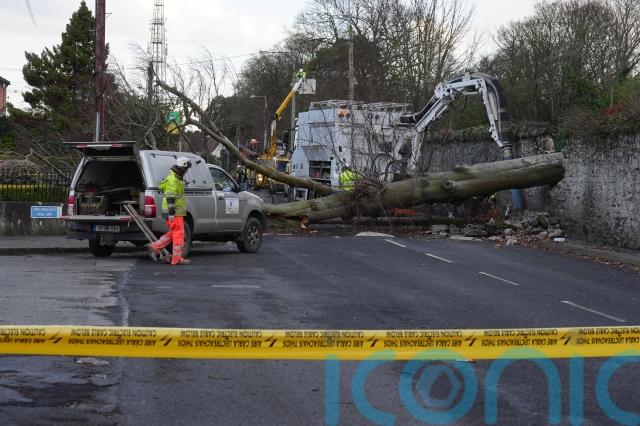
Ireland needs to be better prepared for the next major weather event, the Climate Change Advisory Council has said.
The advisory body said Storm Eowyn “exposed Ireland’s vulnerability and lack of resilience” in its critical infrastructure and services when coping with extreme climate events.
It recommended establishing a national climate damage register to better monitor and record the economic, social and environmental impacts of damaging storms, floods and winds.
It also advised the Government to fund and improve systems to monitor “all critical atmospheric, land and ocean variables”.
“Proactive adaptation is urgently needed if Ireland is to improve its preparedness for and response to rapidly emerging climate risks,” it said.
“This must be underpinned by robust climate data and services.”
The council’s recommendations were in the first publication of its 2025 annual review series which examines Ireland’s changing climate.
The review said “inadequate” critical infrastructure was exposed by Storm Darragh and Storm Eowyn, and underpinned previous calls for adaptation to extreme weather events.
Last year was the warmest year ever globally and the fourth warmest year in Ireland.
Seven of the top 10 warmest years in Ireland have been since 2005.
Storm Eowyn in January of this year set an all-time record with hurricane-force winds of 142km per hour (88mph) which saw more than a million premises on the island of Ireland without power.
It took the ESB 19 days to fully restore all connections in the Republic, compared with seven and eight days during storms Darragh and Ophelia respectively.

More than 200,000 in the Republic of Ireland were without water, over one million telecom customers without broadband or phone coverage, and widespread agricultural damage.
“Storm Eowyn has exposed Ireland’s vulnerability and lack of resilience in terms of critical infrastructure and services when coping with extreme climate events,” the report stated.
Peter Thorne, chairman of the Climate Change Advisory Council’s adaptation committee, said it was time to act.
“Government cannot procrastinate any longer,” he said.
“Proactive action can and must improve our preparedness for and response to rapidly emerging climate risks, to protect and support people, and future-proof our communities.
“This must be underpinned by robust climate data and services.
“The council has highlighted the inadequacy of Ireland’s approach to address our changing climate over many years and we have consistently called for investment and legislation to address the vulnerability and lack of resilience within our critical infrastructure and services in coping with extreme climate events.
“If we do not put the structures and resources in place we will increasingly expose people and communities to the destructive effects of extreme weather events, magnifying future costs and risks to society.”
Subscribe or register today to discover more from DonegalLive.ie
Buy the e-paper of the Donegal Democrat, Donegal People's Press, Donegal Post and Inish Times here for instant access to Donegal's premier news titles.
Keep up with the latest news from Donegal with our daily newsletter featuring the most important stories of the day delivered to your inbox every evening at 5pm.